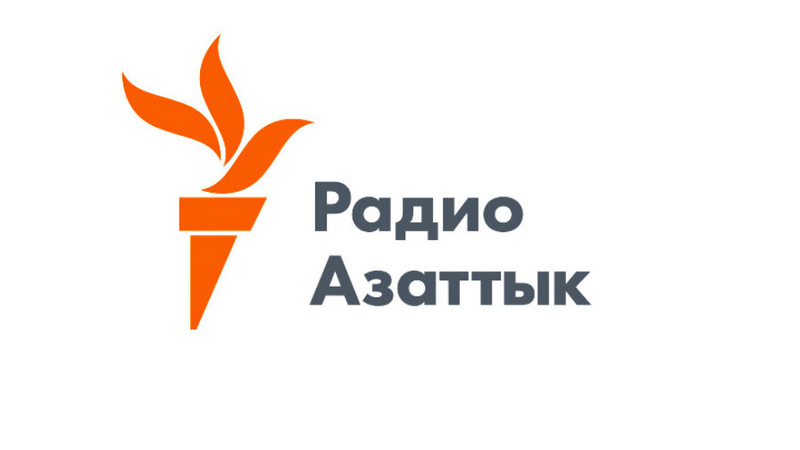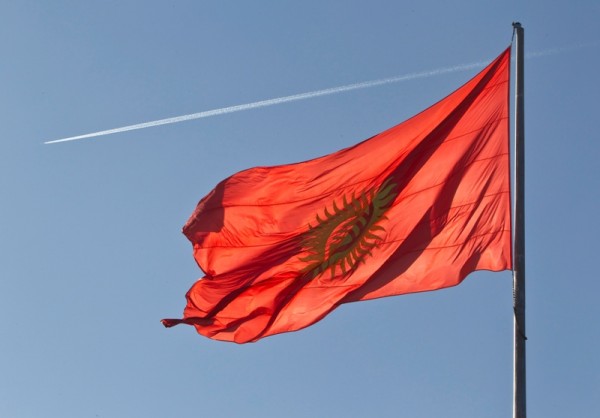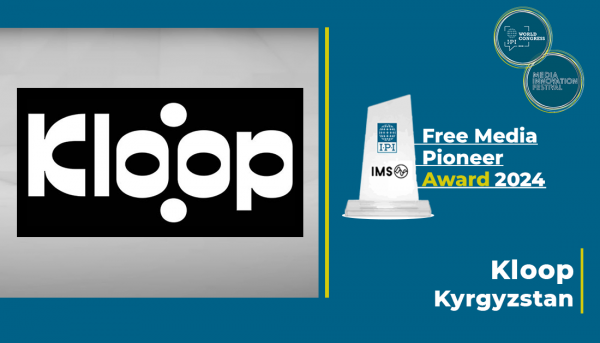IPI and its global network today urge authorities in Kyrgyzstan to reverse a decision banning the operations in the country of Radio Azattyk, the Kyrgyz Service of RFE/RL, a U.S. Congress-funded media corporation. A district court in Bishkek handed an initial ruling in this direction on April 27.
On April 27, a district court in Bishkek granted a request for the ban from the Kyrgyz Ministry of Culture. The ministry made the request in response to Azattyk’s refusal to remove a video from September 2022 which was produced by the radio’s sister television station, Current Time, and which portrayed a recent border conflict between Kyrgyzstan and Tajikistan.
Kyrgyz officials claimed that the video violated local laws, disseminated false information and “promoted conflict, violence and ethnic intolerance.” According to the Kyrgyz government, a section of the report quoted officials from Tajikistan, who accused Kyrgyzstan of being responsible for the hostilities.
“Presenting the positions of opposing sides to a conflict lies at the basis of fair and impartial journalism”, IPI Deputy Director Scott Griffen said. “Kyrgyz authorities have no excuse to harass independent journalists at Radio Azattyk, who work to provide the public with high-quality and balanced news. We call on the ministry to withdraw this request and on the appeals court to overturn the ruling in accordance with the fundamental right of freedom of expression.”
In late October, Kyrgyzstan’s Ministry of Culture blocked Radio Azattyk’s websites in both Kyrgyz and Russian languages for two months. These blocks have since been extended. Authorities have also frozen the media outlet’s accounts in Kyrgyzstan, making it impossible for Azattyk to pay salaries. At the same time, the Kyrgyz government continued to impose fines on the media outlet. Azattyk filed a complaint challenging the legality of these actions, which a court in Bishkek refused.
According to IPI member Anna Kapushenko, the editor-in-chief of the independent Kyrgyz media outlet Kloop, media experts contacted by the outlet confirmed that there was no manipulation or false information in the video. According to Kapushenko, Azattyk simply presented the official position of Tajik authorities regarding the conflict, alongside the Kyrgyz position.
The widely condemned Law on Protection from False Information empowers Kyrgyz state officials to block news websites without explanation and without allowing them to contest the blocks before they are enforced.
Jamie Fly, the president of Radio Free Europe/Radio Liberty, confirmed that the outlet would appeal the decision: “Our history has shown that when people want reliable information that is being censored by their government, they will find ways to access it,” he said.
“We will continue covering events and developments in Kyrgyzstan and the world in the Kyrgyz language,” Venera Djumataeva, the diretor of RFE/RL’s Kyrgyz service told IPI. “However, Kyrgyzstan’s press freedom – and democratic development – will suffer if Radio Azattyk loses its local bureau and status as a media organization,” she said.
Backsliding on press freedom
Since the accession to power of President Sadyr Japarov in 2021, issues linked to freedom of speech have become commonplace in Kyrgyzstan, in a context of generalized democratic backsliding in the country. As a result, Kyrgyzstan was downgraded from “Partly Free” to “Not Free” in a 2021 report by Freedom House, following the election of Japarov as president.
Until recently, Kyrgyzstan had been experiencing gradual progress towards democratic values, which often came at the hands of ordinary citizens. In the past 18 years, the country has experienced two revolutions – the “Tulip Revolution” in March 2005 and the “Second Kyrgyz Revolution” in April 2010. The latter resulted in significant institutional changes, paving the way for democratization in the country. Despite being widely regarded as an outlier in Central Asia due to its relatively pluralistic and functional parliamentary democracy, the space for political freedoms in Kyrgyzstan has decreased in the past two years.



